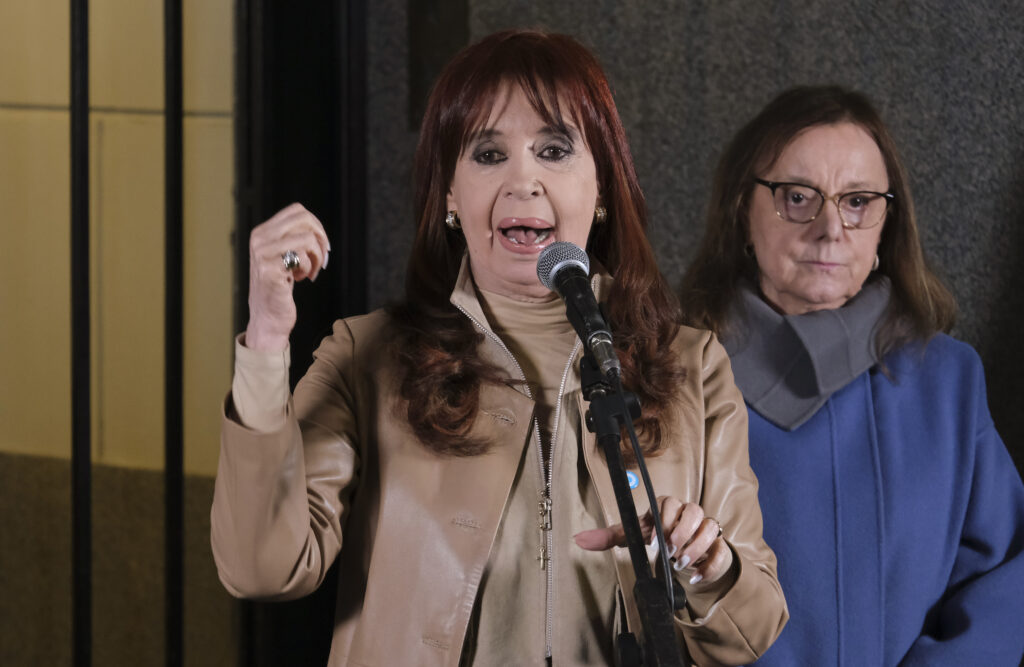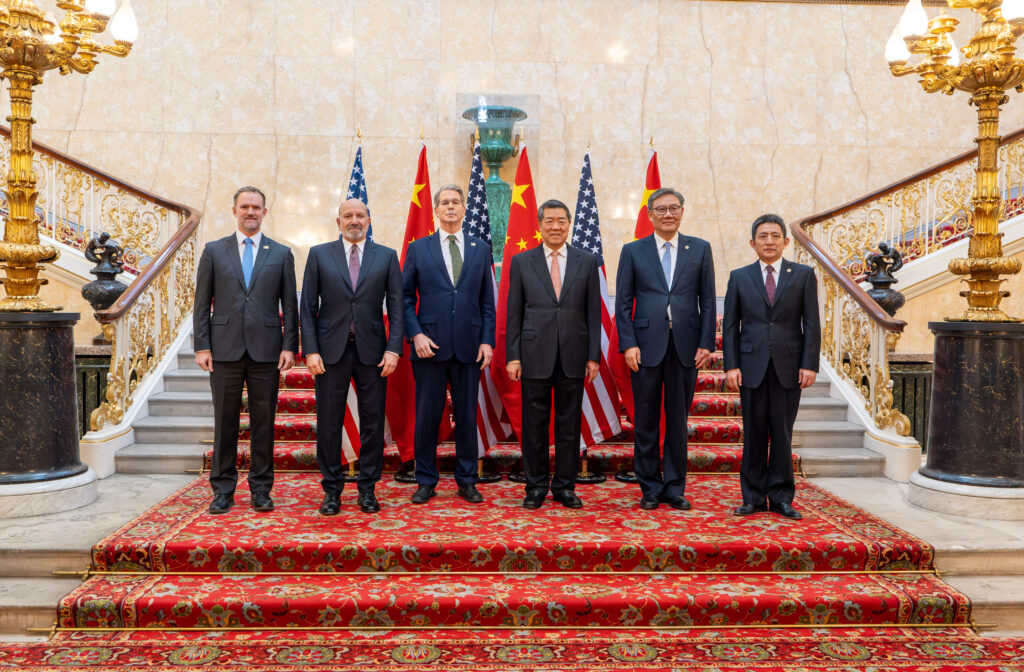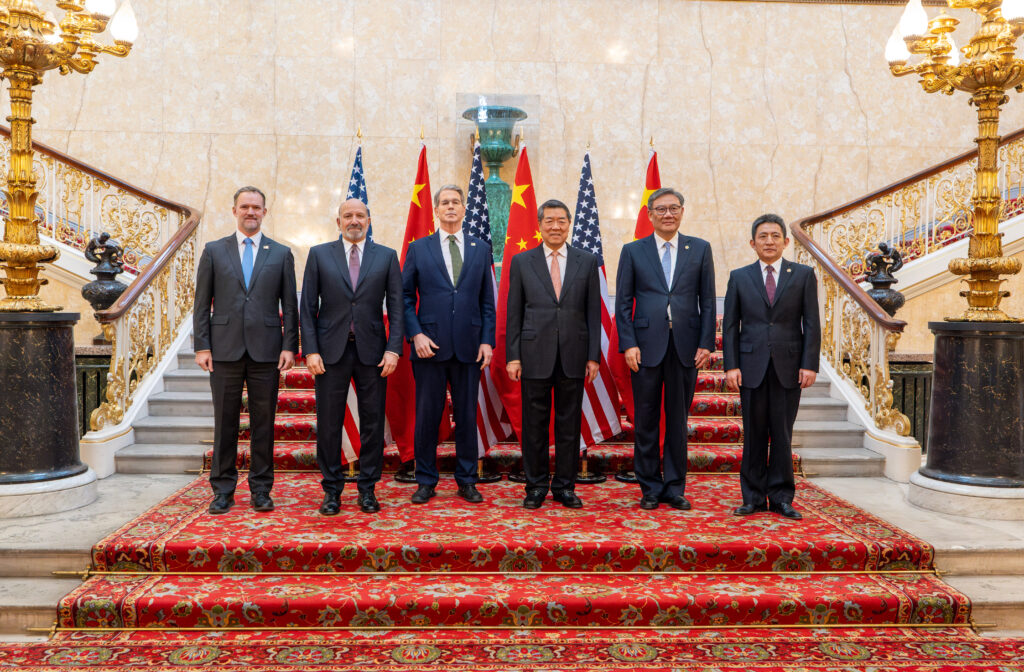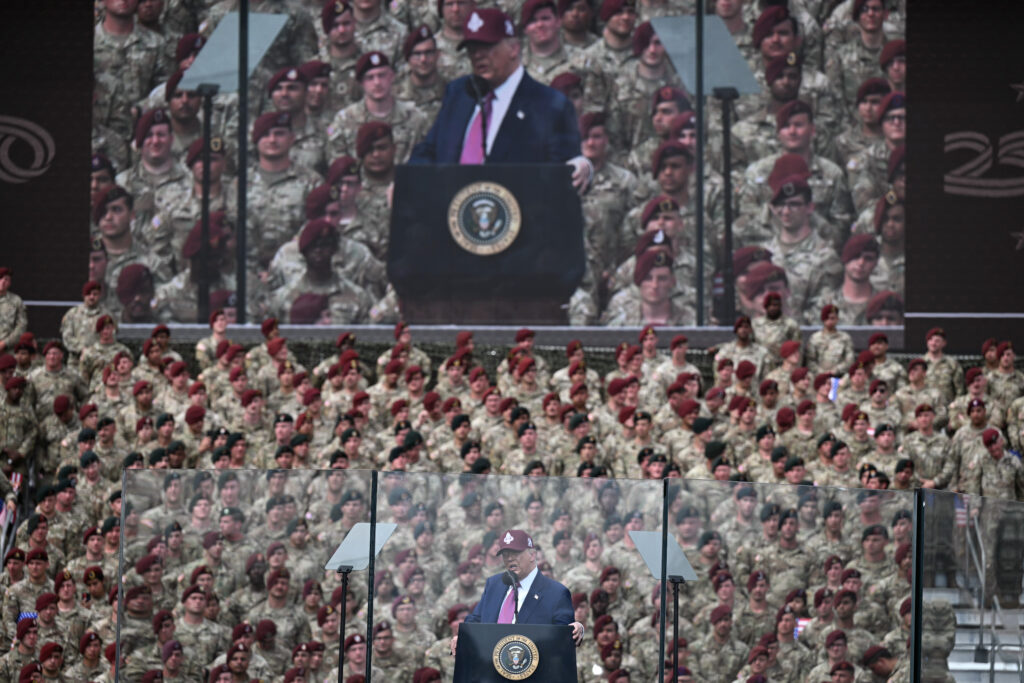Argentine: la Cour suprême confirme la condamnation de l’ex-présidente Kirchner à six ans de prison et inéligibilité
La Cour suprême argentine a confirmé mardi la condamnation de l’ex-présidente péroniste Cristina Kirchner, figure de la politique argentine depuis 20 ans, à une peine de six ans de prison et d’inéligibilité à vie pour fraude pendant sa présidence.Dans son jugement, auquel l’AFP a eu accès, la Cour considère que les peines prononcées en première et deuxième instances “étaient fondées sur les nombreuses preuves produites”.En conséquence, elle “rejette le recours” de la politicienne de centre-gauche qui, en raison de son âge, 72 ans, devrait éviter l’incarcération au bénéfice d’une assignation a résidence.La Cour suprême devait se prononcer sur le recours présenté par Mme Kirchner contre sa condamnation fin 2022 à six ans de prison et une inéligibilité à vie, pour “fraude au préjudice de l’administration publique” durant sa présidence. Le jugement avait été confirmé en deuxième instance en 2024.L’affaire porte sur l’attribution de marchés publics -des chantiers routiers- dans le fief de Mme Kirchner à Santa Cruz pendant ses mandats présidentiels (2007-2015). Huit co-accusés, des ex-fonctionnaires provinciaux, chefs d’entreprises, avaient également été condamnés.”Justice. Fin”, a commenté peu après le jugement le président ultralilbéral Javier Milei sur son compte X. “La République fonctionne, et tous les journalistes corrompus, complices de politiciens menteurs, ont été démasqués dans leurs opérettes sur le prétendu pacte d’impunité”, a-t-il ajouté en référence à des spéculations selon lesquelles divers pans de la scène politique se seraient entendus pour éviter une condamnation a Mme Kirchner.Mme Kirchner, qui nie toute malversation, n’a eu de cesse dans cette procédure de dénoncer une “persécution politico-judiciaire” pour la “bannir” de la politique. “Ils me veulent soit prisonnière soit morte”, a-t-elle encore lancé samedi en meeting, en référence à l’attentat auquel elle a réchappé en 2022.Plusieurs centaines de sympathisants de Mme Kirchner, réunis depuis le matin devant le siège du Parti justicialiste, ont exprimé leur soutien et colère à l’annonce du jugement, a constaté l’AFP. Mme Kirchner devait s’adresser à eux en fin d’après-midi.
Les négociations commerciales entre Pékin et Washington jouent les prolongations à Londres
Les négociations à Londres entre Chine et Etats-Unis, sont productives et se poursuivent mardi soir, selon le secrétaire américain au Trésor, Scott Bessent, qui rentre à Washington, a affirmé à l’AFP une source officielle américaine.M. Bessent, qui est à la tête de la délégation américaine, est en effet attendu mercredi dans la capitale américaine pour une audition devant le Congrès mais ses collègues, le secrétaire au Commerce Howard Lutnick et le représentant au Commerce de la Maison Blanche (USTR) Jamieson Greer, restent pour poursuivre les discussions avec les émissaires chinois, a-t-on ajouté de même source.La Chine est de son côté représentée par son vice-Premier ministre He Lifeng, comme à Genève, accompagné de son ministre du Commerce Wang Wentao et du représentant au Commerce international Li Chenggang.Ce nouveau cycle de discussions vise à prolonger la trêve arrachée il y a un mois à Genève, qui avait amené les deux premières puissances économiques à réduire substantiellement leurs droits de douanes respectifs pour une durée de 90 jours.Le président américain Donald Trump avait affirmé lundi avoir “de bons échos”. “Tout se passe bien avec la Chine. Mais la Chine n’est pas facile”, a-t-il dit. “Nous souhaitons ouvrir la Chine et si nous n’y parvenons pas, nous ne ferons sans doute pas de geste” en leur faveur.Les terres rares chinoises constituent un enjeu clef des négociations, les Etats-Unis souhaitant rétablir le rythme des expéditions de ces métaux stratégiques, bien plus bas “que celui considéré comme optimal par les entreprises”, a souligné sur CNBC Kevin Hasset, principal conseiller économique de M. Trump.- Pas de grand accord -Or ces matières premières, dont les expéditions pâtissent de la guerre commerciale mondiale lancée début avril par le président américain, sont cruciales pour les batteries électriques, les éoliennes ou encore les systèmes de défense (missiles, radars, satellites).La Chine aimerait de son côté que les États-Unis reconsidèrent certains contrôles aux exportations sur ses produits. Interrogé sur cette possibilité, M. Trump s’est contenté d’un “nous verrons bien” évasif.Selon Emily Benson, responsable stratégie pour Minerva Technology, “les rumeurs venant de Londres portent sur, potentiellement, le relâchement de certains contrôles d’exportations sur des produits de haute technologie” de la part de Washington.Pékin pour sa part “pourrait faire preuve de bonne volonté et renforcer les licences d’exportations prises dans le système de contrôle”, à l’image de ce que la Chine a proposé à l’Union européenne pour accélérer les processus.Mais “je ne pense pas qu’il soit raisonnable d’espérer une sorte de grand accord bilatéral qui puisse être vu comme un accord commercial et d’investissement”, a-t-elle néanmoins nuancé auprès de l’AFP.Les marchés ont été dans tous les cas attentistes, guettant les annonces en provenance de Londres, les indices à Wall Street terminant la séance en légère hausse.- Dégâts réels -“C’est le principal point d’attention cette semaine. Mais pour l’instant rien ne s’est produit, la semaine a donc commencé lentement” sur les marchés financiers, a déclaré à l’AFP Art Hogan, analyste pour B. Riley Wealth Management.Cette rencontre à Londres est organisée après un accès de tension, M. Trump accusant il y a une dizaine de jours Pékin de ne pas respecter les termes de l’accord de désescalade signé à Genève.Puis l’Américain et son homologue chinois Xi Jinping se sont entretenus jeudi dernier par téléphone, un échange jugé positif par le locataire de la Maison-Blanche.En Suisse, Washington avait accepté de ramener les droits de douane sur les produits chinois de 145% à 30%, en échange d’un mouvement similaire par Pékin de 125% à 10% sur les produits américains, pour 90 jours.Mais les conséquences de la guerre commerciale sont déjà réelles, avec une baisse de 12,7% des exportations chinoises vers les Etats-Unis en mai par rapport à avril, selon les statistiques officielles de Pékin.Tout en travaillant à la normalisation des relations avec Washington, le gouvernement chinois s’est lancé dans des discussions avec ses autres partenaires pour constituer un front commun face aux États-Unis.
Les négociations commerciales entre Pékin et Washington jouent les prolongations à Londres
Les négociations à Londres entre Chine et Etats-Unis, sont productives et se poursuivent mardi soir, selon le secrétaire américain au Trésor, Scott Bessent, qui rentre à Washington, a affirmé à l’AFP une source officielle américaine.M. Bessent, qui est à la tête de la délégation américaine, est en effet attendu mercredi dans la capitale américaine pour une audition devant le Congrès mais ses collègues, le secrétaire au Commerce Howard Lutnick et le représentant au Commerce de la Maison Blanche (USTR) Jamieson Greer, restent pour poursuivre les discussions avec les émissaires chinois, a-t-on ajouté de même source.La Chine est de son côté représentée par son vice-Premier ministre He Lifeng, comme à Genève, accompagné de son ministre du Commerce Wang Wentao et du représentant au Commerce international Li Chenggang.Ce nouveau cycle de discussions vise à prolonger la trêve arrachée il y a un mois à Genève, qui avait amené les deux premières puissances économiques à réduire substantiellement leurs droits de douanes respectifs pour une durée de 90 jours.Le président américain Donald Trump avait affirmé lundi avoir “de bons échos”. “Tout se passe bien avec la Chine. Mais la Chine n’est pas facile”, a-t-il dit. “Nous souhaitons ouvrir la Chine et si nous n’y parvenons pas, nous ne ferons sans doute pas de geste” en leur faveur.Les terres rares chinoises constituent un enjeu clef des négociations, les Etats-Unis souhaitant rétablir le rythme des expéditions de ces métaux stratégiques, bien plus bas “que celui considéré comme optimal par les entreprises”, a souligné sur CNBC Kevin Hasset, principal conseiller économique de M. Trump.- Pas de grand accord -Or ces matières premières, dont les expéditions pâtissent de la guerre commerciale mondiale lancée début avril par le président américain, sont cruciales pour les batteries électriques, les éoliennes ou encore les systèmes de défense (missiles, radars, satellites).La Chine aimerait de son côté que les États-Unis reconsidèrent certains contrôles aux exportations sur ses produits. Interrogé sur cette possibilité, M. Trump s’est contenté d’un “nous verrons bien” évasif.Selon Emily Benson, responsable stratégie pour Minerva Technology, “les rumeurs venant de Londres portent sur, potentiellement, le relâchement de certains contrôles d’exportations sur des produits de haute technologie” de la part de Washington.Pékin pour sa part “pourrait faire preuve de bonne volonté et renforcer les licences d’exportations prises dans le système de contrôle”, à l’image de ce que la Chine a proposé à l’Union européenne pour accélérer les processus.Mais “je ne pense pas qu’il soit raisonnable d’espérer une sorte de grand accord bilatéral qui puisse être vu comme un accord commercial et d’investissement”, a-t-elle néanmoins nuancé auprès de l’AFP.Les marchés ont été dans tous les cas attentistes, guettant les annonces en provenance de Londres, les indices à Wall Street terminant la séance en légère hausse.- Dégâts réels -“C’est le principal point d’attention cette semaine. Mais pour l’instant rien ne s’est produit, la semaine a donc commencé lentement” sur les marchés financiers, a déclaré à l’AFP Art Hogan, analyste pour B. Riley Wealth Management.Cette rencontre à Londres est organisée après un accès de tension, M. Trump accusant il y a une dizaine de jours Pékin de ne pas respecter les termes de l’accord de désescalade signé à Genève.Puis l’Américain et son homologue chinois Xi Jinping se sont entretenus jeudi dernier par téléphone, un échange jugé positif par le locataire de la Maison-Blanche.En Suisse, Washington avait accepté de ramener les droits de douane sur les produits chinois de 145% à 30%, en échange d’un mouvement similaire par Pékin de 125% à 10% sur les produits américains, pour 90 jours.Mais les conséquences de la guerre commerciale sont déjà réelles, avec une baisse de 12,7% des exportations chinoises vers les Etats-Unis en mai par rapport à avril, selon les statistiques officielles de Pékin.Tout en travaillant à la normalisation des relations avec Washington, le gouvernement chinois s’est lancé dans des discussions avec ses autres partenaires pour constituer un front commun face aux États-Unis.
Colombie: sept morts dans des attaques coordonnées dans le sud-ouest du pays
Sept personnes ont été tuées et 28 blessées mardi dans des attaques coordonnées dans le sud-ouest de la Colombie, théâtre d’affrontements récurrents entre guérilléros et forces de l’ordre, ont annoncé les autorités.Dans les départements de Cauca et de Valle del Cauca opèrent des dissidents de l’ex-guérilla des Farc -les Forces armées révolutionnaires de Colombie qui ont signé un accord de paix en 2016-, en conflit ouvert avec le gouvernement du président de gauche Gustavo Petro.Au total, 24 attaques, sous forme de fusillades et d’explosions de drones ou de voitures et motos piégées, ont visé des postes de police et des bâtiments municipaux à Cali, la troisième ville du pays, ainsi que plusieurs municipalités voisines.Elles ont tué cinq civils et deux policiers et fait 28 blessés, selon le bilan actualisé fourni par les autorités.Des attentats “indiscriminés” selon le général Carlos Triana, directeur de la police. Le ministère de la Défense les a qualifiés d'”attaques terroristes”.Le ministre de l’Intérieur, Armando Benedetti, a indiqué que le gouvernement tentait de déterminer si ces faits étaient liés à l’attentat samedi à Bogota contre Miguel Uribe, sénateur conservateur et prétendant à la présidence en 2026, blessé par balles à la tête. Le dirigeant de 39 ans est en soins intensifs dans une clinique de la capitale et son état est stable mais critique, selon les médecins. – État-major central -Diverses explosions ont été enregistrées dans le département de Valle del Cauca, dont Cali, la capitale, Jamundi, Corinto et Buenaventura, le plus important port colombien sur le Pacifique. D’autres explosions se sont produites à El Bordo et Villa Rica, situés dans le département voisin du Cauca.Des photographes de l’AFP ont observé des véhicules calcinés et des bâtiments détruits à Cali et dans d’autres villes touchées.Luz Amparo Hincapié, une habitante de Corinto, était chez elle lorsque l’explosion a ravagé sa boulangerie. “On a pensé à un tremblement de terre,” a-t-elle déclaré à l’AFP. Elle est allée ensuite constater les dégâts sur son commerce: “Tout est détruit”, s’est-elle lamenté.Dans ces départements de Cauca et de Valle del Cauca, ainsi que dans l’Amazonie colombienne, la dissidence État-Major Central (EMC), commandée par Ivan Mordisco, occupe de vastes zones de culture de coca, le principal ingrédient de la cocaïne.Sans revendiquer leur responsabilité dans les attaques, les guérilleros de l’EMC ont publié un communiqué demandant aux civils de ne pas s’approcher des bases militaires et commissariats. – “Offensive bien coordonnée” -Pour l’experte en sécurité Elizabeth Dickinson de l’International Crisis Group (ICG), ces attaques sont probablement l’œuvre de l’EMC.”Il s’agit d’une offensive particulièrement bien coordonnée. Cela démontre vraiment la capacité que le groupe a développé”, a-t-elle déclaré à l’AFP. Depuis plusieurs semaines, des spéculations ont émergé concernant l’état de santé d’Ivan Mordisco, qui aurait été blessé lors d’une opération militaire, et sa possible arrestation. Les attentats de mardi pourraient avoir pour but de détourner l’attention de l’armée.Grâce à de grandes opérations militaires, le gouvernement a tenté d’encercler ses hommes dans une région montagneuse du Cauca, connue sous le nom de Cañón del Micay.Les guérilleros “essaient d’augmenter le coût de cette initiative militaire pour le gouvernement”, estime Mme Dickinson.Cette série d’attaques est l’une des pires menées par des guérilleros sous le gouvernement de Gustavo Petro, arrivé au pouvoir en août 2022 avec l’espoir de négocier la paix avec tous les groupes armés illégaux du pays, mais qui, pour l’instant, n’a conclu d’accord avec aucun. L’EMC a participé à des dialogues de paix avec le président de gauche, mais en avril 2024 Ivan Mordisco a quitté les négociations.En janvier, des guérilléros de l’Armée de libération nationale (ELN) ont assassiné plus de 100 personnes dans le Catatumbo (est), une région à la frontière avec le Venezuela.
Amical: le Sénégal inflige une défaite historique à l’Angleterre de Tuchel (3-1)
L’équipe d’Angleterre, largement remaniée, a subi mardi en match amical face au Sénégal (3-1) sa première défaite depuis la nomination du sélectionneur Thomas Tuchel, la première de son histoire face à une équipe africaine.A Nottingham, les Anglais se sont montrés extrêmement friables défensivement, trois jours après un succès étriqué contre Andorre (1-0) en qualifications pour le Mondial-2026 qui avait déjà déplu au sélectionneur.”Peut-être qu’on aurait mérité un peu plus au niveau du résultat, mais j’ai senti qu’on était un peu grippés, pas assez actifs pendant une bonne partie du match”, a commenté Tuchel devant la caméra du diffuseur ITV à l’issue de la défaite face au Sénégal. “Nous avons concédé les deux premiers buts trop facilement, mais la réaction a été bonne ensuite.”L’Allemand avait procédé mardi à une très large revue d’effectif, gardien inclus ne gardant, parmi les titulaires habituels de la sélection que Declan Rice, Bukayo Saka et Harry Kane au coup d’envoi.Le capitaine a bonifié la bonne entame de match, en renard des surfaces (7e, 1-0), après un bon pressing d’Eberechi Eze et Conor Gallagher, puis un tir d’Anthony Gordon relâché par Edouard Mendy.Mais la défense expérimentale (Walker, Colwill, Chalobah, Lewis-Skelly) a concédé bien trop d’occasions face aux vifs attaquants sénégalais, ce qui a contraint Dean Henderson à intervenir très tôt, puis trop souvent.- “Pas paniquer” -Le gardien de Crystal Palace n’a rien pu faire devant son coéquipier en club Ismaïla Sarr (40e, 1-1), laissé trop seul par Kyle Walker et bien servi par Nicolas Jackson, l’avant-centre de Chelsea.Le portier a encore vu sa défense l’abandonner sur le but de Habib Diarra, le milieu de Strasbourg, dont la cote va encore s’élever en Angleterre (62e, 1-2).Les entrants ont tenté le tout pour le tout, notamment le régional de l’étape Morgan Gibbs-White, attaquant de Nottingham, mais aussi le milieu offensif du Real Madrid Jude Bellingham, privé d’un but à cause de la main d’un coéquipier (84e).Cheikh Sabaly (90e+3, 1-3) en contre-attaque a puni encore davantage les Anglais, escortés jusqu’aux vestiaires par des sifflets.”Nous n’allons pas paniquer mais nous savons que nous devons être meilleurs”, d’autant que le Mondial va “vite arriver”, a commenté Kane.L’Angleterre n’avait jamais perdu contre une équipe africaine en 21 affrontements (15 victoires, 6 nuls).
Trump claims LA being invaded by ‘foreign enemy’
US President Donald Trump on Tuesday claimed Los Angeles was being invaded by a “foreign enemy” and vowed to “liberate” the city after days of protests sparked by immigration raids.In a hardline speech at one of the country’s biggest army bases, Trump described protesters as “animals” and got troops to boo the names of California Governor Gavin Newsom and ex-president Joe Biden.Trump has deployed thousands of troops including 700 active duty US Marines to Los Angeles, despite California authorities saying the move is unnecessary and will inflame the situation.Newsom has called Trump’s actions “dictatorial.””This anarchy will not stand. We will not allow federal agents to be attacked, and we will not allow an American city to be invaded and conquered by a foreign enemy,” Trump told troops at Fort Bragg in North Carolina.Trump described the protesters as “animals” who “proudly carry the flags of other countries.” “What you’re witnessing in California is a full-blown assault on peace, on public order and national sovereignty, carried out by rioters bearing foreign flags with the aim of continuing a foreign invasion of our country,” the US president said.Trump linked the protesters to what he called “uncontrolled migration” and said that Europe — which his administration has repeatedly berated on the subject — must act too.”As the entire world can now see, uncontrolled migration leads to chaos, dysfunction and disorder,” Trump said. “And you know what? They have it in Europe too. It’s happening in many of the countries of Europe. They better do something before it’s too late.”
Macron défend son bilan écologique, face aux reculs et aux critiques
Après quatre jours à tenter d’incarner le combat écologique sur la scène internationale, Emmanuel Macron a défendu bec et ongles mardi soir son bilan environnemental en France, souvent jugé insuffisant et maintenant détricoté y compris par certains dans son propre camp.Point d’orgue d’une séquence qui l’a vu en porte-parole de la cause des océans à Monaco puis à Nice, pour une conférence internationale de l’ONU qu’il coprésidait avec le Costa Rica: une émission télévisée sur France 2 mardi en prime time, présentée par Léa Salamé et Hugo Clément depuis la Promenade des Anglais.”Je n’ai pas de leçon à recevoir”, a martelé le chef de l’Etat face aux questions sur certains reculs, par exemple sur l’herbicide glyphosate qu’il avait promis d’interdire en 2017 avant d’y renoncer deux ans plus tard.”Ce que j’adore le plus, c’est les journalistes qui pendant huit ans ont dit +il n’a pas de bilan écologique+ et qui maintenant disent +il détricote son bilan écologique+”, s’est-il agacé.En début d’émission, Emmanuel Macron a plusieurs fois déploré d’être interrogé sur ces points controversés avant de parler des océans, thème de la soirée.Car là-dessus, son message est clair.”Nice, vraiment, est un succès”, a-t-il revendiqué.”Alors que les vents mauvais se sont remis à souffler pour écarter toutes les questions climatiques, environnementales ou de biodiversité de l’agenda international, jamais la communauté internationale n’avait mobilisé autant de chefs d’État et de gouvernement, autant de pays pour nos océans”, s’était-il félicité dès la veille en conférence de presse.- “Prédation” et “menace” -Depuis lundi, il a mis en avant les ratifications engrangées, et les engagements d’autres pays, qui permettront selon lui une entrée en vigueur au 1er janvier 2026 du traité de protection de la haute mer — un “exploit”, a-t-il estimé, mais qui devra être vérifié à l’automne.”Une marée d’espoir et un grand motif de célébration”, a salué Rebecca Hubbard, directrice de la High Seas Alliance, une organisation non gouvernementale.Sur l’autre avancée de la conférence, l’extension des aires marines protégées annoncées par plusieurs pays dont la France, l’accueil a été en revanche plus sceptique. Pour Nicolas Fournier de l’ONG américaine Oceana, le président “a fait naître l’espoir que le gouvernement français agisse enfin contre le chalutage de fond dans les aires marines protégées, mais ces annonces sont plus symboliques qu’efficaces”. “Vous êtes contente d’acheter votre poisson (…) à un prix abordable”, a répondu Emmanuel Macron à Léa Salamé qui le relançait sur ces critiques. “Les trois quarts des criées, elles sont alimentées par ce qui vient aussi du chalutage”, a-t-il insisté.Au-delà, le chef de l’Etat a mis en avant son volontarisme en matière de diplomatie climatique pour montrer qu’il “continue d’agir”, un an après la dissolution de l’Assemblée nationale qui l’a privé durablement de majorité et lui a fait perdre grand nombre de leviers sur la scène nationale.Replié sur ses prérogatives internationales et régaliennes, Emmanuel Macron a plusieurs fois ces derniers jours critiqué le désengagement américain en matière climatique. Alors qu’il se rend dimanche au Groenland, territoire autonome du Danemark convoité par Donald Trump, il a affirmé vouloir y éviter toute “prédation” et toute “menace”. Et il a redit au président américain, qui prévoit de lancer l’exploitation de métaux critiques au fond des eaux internationales du Pacifique, que “nous serions totalement fous” d’exploiter avant d’avoir la connaissance scientifique de ces “abysses”.Mais il a aussi égratigné des décisions prises par le Parlement ou le gouvernement français qui détricotent son bilan écologique déjà jugé insuffisant par de nombreux défenseurs de l’environnement.”On a aujourd’hui une remise en cause aussi de la priorité dans le débat public donnée au climat, y compris d’ailleurs en France”, a-t-il lancé à Nice, dénonçant une “énorme erreur”. Un “coup de gueule” réitéré mardi sur France 2, en appelant le gouvernement et le Parlement à ne “rien relâcher de l’effort”. En cause, la suspension des aides à la rénovation énergétique MaPrimeRénov’, la fin des zones à faibles émissions (ZFE) qui restreignent la circulation des véhicules très polluants, ou encore le retour envisagé à l’usage de pesticides dangereux.Mais cette posture autoproclamée de “vigie” n’a toutefois pas convaincu.”Le président semble avoir honte de ses reculs écolos. Il peut. Où était-il quand l’écologie était sabrée dans le budget et quand ses députés votaient contre l’écologie?”, a critiqué lundi la cheffe des Ecologistes Marine Tondelier.
Macron défend son bilan écologique, face aux reculs et aux critiques
Après quatre jours à tenter d’incarner le combat écologique sur la scène internationale, Emmanuel Macron a défendu bec et ongles mardi soir son bilan environnemental en France, souvent jugé insuffisant et maintenant détricoté y compris par certains dans son propre camp.Point d’orgue d’une séquence qui l’a vu en porte-parole de la cause des océans à Monaco puis à Nice, pour une conférence internationale de l’ONU qu’il coprésidait avec le Costa Rica: une émission télévisée sur France 2 mardi en prime time, présentée par Léa Salamé et Hugo Clément depuis la Promenade des Anglais.”Je n’ai pas de leçon à recevoir”, a martelé le chef de l’Etat face aux questions sur certains reculs, par exemple sur l’herbicide glyphosate qu’il avait promis d’interdire en 2017 avant d’y renoncer deux ans plus tard.”Ce que j’adore le plus, c’est les journalistes qui pendant huit ans ont dit +il n’a pas de bilan écologique+ et qui maintenant disent +il détricote son bilan écologique+”, s’est-il agacé.En début d’émission, Emmanuel Macron a plusieurs fois déploré d’être interrogé sur ces points controversés avant de parler des océans, thème de la soirée.Car là-dessus, son message est clair.”Nice, vraiment, est un succès”, a-t-il revendiqué.”Alors que les vents mauvais se sont remis à souffler pour écarter toutes les questions climatiques, environnementales ou de biodiversité de l’agenda international, jamais la communauté internationale n’avait mobilisé autant de chefs d’État et de gouvernement, autant de pays pour nos océans”, s’était-il félicité dès la veille en conférence de presse.- “Prédation” et “menace” -Depuis lundi, il a mis en avant les ratifications engrangées, et les engagements d’autres pays, qui permettront selon lui une entrée en vigueur au 1er janvier 2026 du traité de protection de la haute mer — un “exploit”, a-t-il estimé, mais qui devra être vérifié à l’automne.”Une marée d’espoir et un grand motif de célébration”, a salué Rebecca Hubbard, directrice de la High Seas Alliance, une organisation non gouvernementale.Sur l’autre avancée de la conférence, l’extension des aires marines protégées annoncées par plusieurs pays dont la France, l’accueil a été en revanche plus sceptique. Pour Nicolas Fournier de l’ONG américaine Oceana, le président “a fait naître l’espoir que le gouvernement français agisse enfin contre le chalutage de fond dans les aires marines protégées, mais ces annonces sont plus symboliques qu’efficaces”. “Vous êtes contente d’acheter votre poisson (…) à un prix abordable”, a répondu Emmanuel Macron à Léa Salamé qui le relançait sur ces critiques. “Les trois quarts des criées, elles sont alimentées par ce qui vient aussi du chalutage”, a-t-il insisté.Au-delà, le chef de l’Etat a mis en avant son volontarisme en matière de diplomatie climatique pour montrer qu’il “continue d’agir”, un an après la dissolution de l’Assemblée nationale qui l’a privé durablement de majorité et lui a fait perdre grand nombre de leviers sur la scène nationale.Replié sur ses prérogatives internationales et régaliennes, Emmanuel Macron a plusieurs fois ces derniers jours critiqué le désengagement américain en matière climatique. Alors qu’il se rend dimanche au Groenland, territoire autonome du Danemark convoité par Donald Trump, il a affirmé vouloir y éviter toute “prédation” et toute “menace”. Et il a redit au président américain, qui prévoit de lancer l’exploitation de métaux critiques au fond des eaux internationales du Pacifique, que “nous serions totalement fous” d’exploiter avant d’avoir la connaissance scientifique de ces “abysses”.Mais il a aussi égratigné des décisions prises par le Parlement ou le gouvernement français qui détricotent son bilan écologique déjà jugé insuffisant par de nombreux défenseurs de l’environnement.”On a aujourd’hui une remise en cause aussi de la priorité dans le débat public donnée au climat, y compris d’ailleurs en France”, a-t-il lancé à Nice, dénonçant une “énorme erreur”. Un “coup de gueule” réitéré mardi sur France 2, en appelant le gouvernement et le Parlement à ne “rien relâcher de l’effort”. En cause, la suspension des aides à la rénovation énergétique MaPrimeRénov’, la fin des zones à faibles émissions (ZFE) qui restreignent la circulation des véhicules très polluants, ou encore le retour envisagé à l’usage de pesticides dangereux.Mais cette posture autoproclamée de “vigie” n’a toutefois pas convaincu.”Le président semble avoir honte de ses reculs écolos. Il peut. Où était-il quand l’écologie était sabrée dans le budget et quand ses députés votaient contre l’écologie?”, a critiqué lundi la cheffe des Ecologistes Marine Tondelier.
Macron défend son bilan écologique, face aux reculs et aux critiques
Après quatre jours à tenter d’incarner le combat écologique sur la scène internationale, Emmanuel Macron a défendu bec et ongles mardi soir son bilan environnemental en France, souvent jugé insuffisant et maintenant détricoté y compris par certains dans son propre camp.Point d’orgue d’une séquence qui l’a vu en porte-parole de la cause des océans à Monaco puis à Nice, pour une conférence internationale de l’ONU qu’il coprésidait avec le Costa Rica: une émission télévisée sur France 2 mardi en prime time, présentée par Léa Salamé et Hugo Clément depuis la Promenade des Anglais.”Je n’ai pas de leçon à recevoir”, a martelé le chef de l’Etat face aux questions sur certains reculs, par exemple sur l’herbicide glyphosate qu’il avait promis d’interdire en 2017 avant d’y renoncer deux ans plus tard.”Ce que j’adore le plus, c’est les journalistes qui pendant huit ans ont dit +il n’a pas de bilan écologique+ et qui maintenant disent +il détricote son bilan écologique+”, s’est-il agacé.En début d’émission, Emmanuel Macron a plusieurs fois déploré d’être interrogé sur ces points controversés avant de parler des océans, thème de la soirée.Car là-dessus, son message est clair.”Nice, vraiment, est un succès”, a-t-il revendiqué.”Alors que les vents mauvais se sont remis à souffler pour écarter toutes les questions climatiques, environnementales ou de biodiversité de l’agenda international, jamais la communauté internationale n’avait mobilisé autant de chefs d’État et de gouvernement, autant de pays pour nos océans”, s’était-il félicité dès la veille en conférence de presse.- “Prédation” et “menace” -Depuis lundi, il a mis en avant les ratifications engrangées, et les engagements d’autres pays, qui permettront selon lui une entrée en vigueur au 1er janvier 2026 du traité de protection de la haute mer — un “exploit”, a-t-il estimé, mais qui devra être vérifié à l’automne.”Une marée d’espoir et un grand motif de célébration”, a salué Rebecca Hubbard, directrice de la High Seas Alliance, une organisation non gouvernementale.Sur l’autre avancée de la conférence, l’extension des aires marines protégées annoncées par plusieurs pays dont la France, l’accueil a été en revanche plus sceptique. Pour Nicolas Fournier de l’ONG américaine Oceana, le président “a fait naître l’espoir que le gouvernement français agisse enfin contre le chalutage de fond dans les aires marines protégées, mais ces annonces sont plus symboliques qu’efficaces”. “Vous êtes contente d’acheter votre poisson (…) à un prix abordable”, a répondu Emmanuel Macron à Léa Salamé qui le relançait sur ces critiques. “Les trois quarts des criées, elles sont alimentées par ce qui vient aussi du chalutage”, a-t-il insisté.Au-delà, le chef de l’Etat a mis en avant son volontarisme en matière de diplomatie climatique pour montrer qu’il “continue d’agir”, un an après la dissolution de l’Assemblée nationale qui l’a privé durablement de majorité et lui a fait perdre grand nombre de leviers sur la scène nationale.Replié sur ses prérogatives internationales et régaliennes, Emmanuel Macron a plusieurs fois ces derniers jours critiqué le désengagement américain en matière climatique. Alors qu’il se rend dimanche au Groenland, territoire autonome du Danemark convoité par Donald Trump, il a affirmé vouloir y éviter toute “prédation” et toute “menace”. Et il a redit au président américain, qui prévoit de lancer l’exploitation de métaux critiques au fond des eaux internationales du Pacifique, que “nous serions totalement fous” d’exploiter avant d’avoir la connaissance scientifique de ces “abysses”.Mais il a aussi égratigné des décisions prises par le Parlement ou le gouvernement français qui détricotent son bilan écologique déjà jugé insuffisant par de nombreux défenseurs de l’environnement.”On a aujourd’hui une remise en cause aussi de la priorité dans le débat public donnée au climat, y compris d’ailleurs en France”, a-t-il lancé à Nice, dénonçant une “énorme erreur”. Un “coup de gueule” réitéré mardi sur France 2, en appelant le gouvernement et le Parlement à ne “rien relâcher de l’effort”. En cause, la suspension des aides à la rénovation énergétique MaPrimeRénov’, la fin des zones à faibles émissions (ZFE) qui restreignent la circulation des véhicules très polluants, ou encore le retour envisagé à l’usage de pesticides dangereux.Mais cette posture autoproclamée de “vigie” n’a toutefois pas convaincu.”Le président semble avoir honte de ses reculs écolos. Il peut. Où était-il quand l’écologie était sabrée dans le budget et quand ses députés votaient contre l’écologie?”, a critiqué lundi la cheffe des Ecologistes Marine Tondelier.








